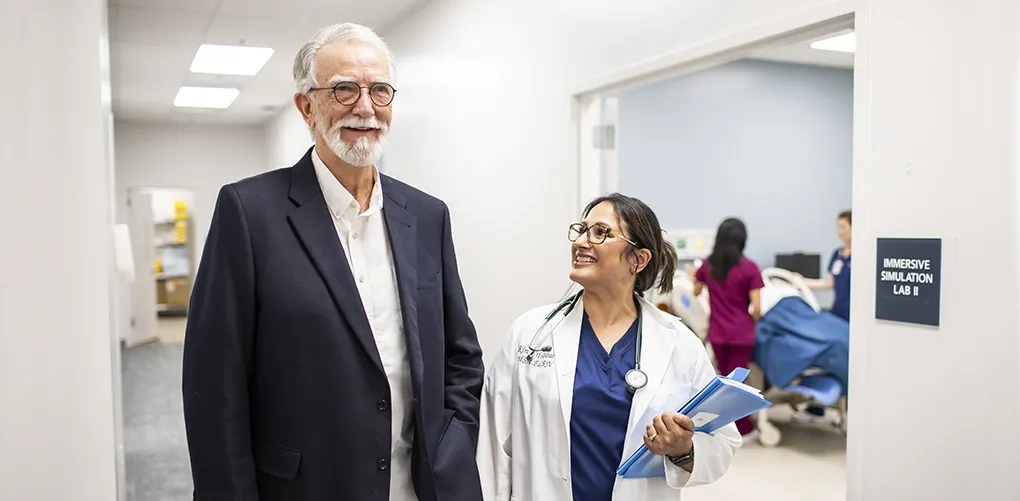
The Call for Leaders: Master of Healthcare Administration
Healthcare leaders face a complex and demanding environment, where decisions impact the lives and well-being of patients. Jessup University’s Master of Healthcare Administration (MHA) program is designed to equip students with the leadership skills and compassionate approach needed to navigate these challenges. This happens largely through cultivating servant leadership in every student—a concept at the heart of Jessup’s mission as a Christian university.
Servant leadership plays a central role in the MHA curriculum, preparing graduates to lead with compassion, integrity, and innovation. In an era where healthcare is becoming increasingly patient-centered, the ability to lead with empathy and a servant’s heart is more critical than ever. Dr. George Stubblefield, the program’s founder, explains, “The medical paradigm is shifting toward a more human and patient-centric approach. Servant leadership involves communication, compassion, and empowering others to succeed.”
Healthcare administrators have one of the most daunting, yet rewarding, tasks ahead of them – achieving the Quadruple Aim – if they are to be successful. This includes:
- Improving patient experience
- Improving population health
- Reducing costs
- Increasing provider satisfaction.
One method of achieving this is value-based care, which focuses on preventative and integrated care, to keep patients healthy. It breaks organizations out of the fee-for-service treadmill and focuses on the quality of healthcare provided. Jessup’s MHA program is designed to train leaders to focus on high-quality outcomes and lead organizations that seek to achieve the Quadruple Aim to transform our fractured healthcare system.
“Through value-based care, health professionals are learning about your life and habits, ensuring you’re doing preventative medicine and everything you can to stay healthy longer,” says Larry Gilmore, the program director for Jessup’s MHA. “If we want to see change in our healthcare system––and I mean real, lasting change––we’re going to need the right leaders.”
In the healthcare industry, where lives are impacted daily, leaders must possess the humility to put patients and staff first, making decisions that prioritize care and ethical responsibility. By cultivating this mindset, graduates are better equipped to improve patient outcomes, build trust within their teams, and guide organizations through the ever-evolving challenges of the field. Dr. Stubblefield emphasizes this integration, saying, “Our students will learn how to integrate their belief system into the business model of each local healthcare agency, bringing a unique perspective to healthcare leadership.”
Through leadership assessments, coaching, and mentorship opportunities, the program encourages students to develop not just the technical skills required for healthcare management—such as data analysis and strategic planning—but also the relational and ethical skills needed to excel. Integrating the DISC success coaching assessment is one way the program emphasizes relational skills development. By understanding different behavioral styles, graduates are better prepared to work collaboratively and effectively lead diverse teams.
By prioritizing servant leadership and success coaching, Jessup’s MHA program prepares future healthcare leaders to lead by example. “Our goal is to prepare highly skilled and compassionate leaders who are desperately needed in today’s healthcare system to innovate new products and services and be different in the healthcare space,” says Gilmore.
Graduates of Jessup’s MHA will be well-positioned to enter the healthcare industry as transformational leaders of value-based care who cultivate compassion, empathy, and ethical decision-making.
